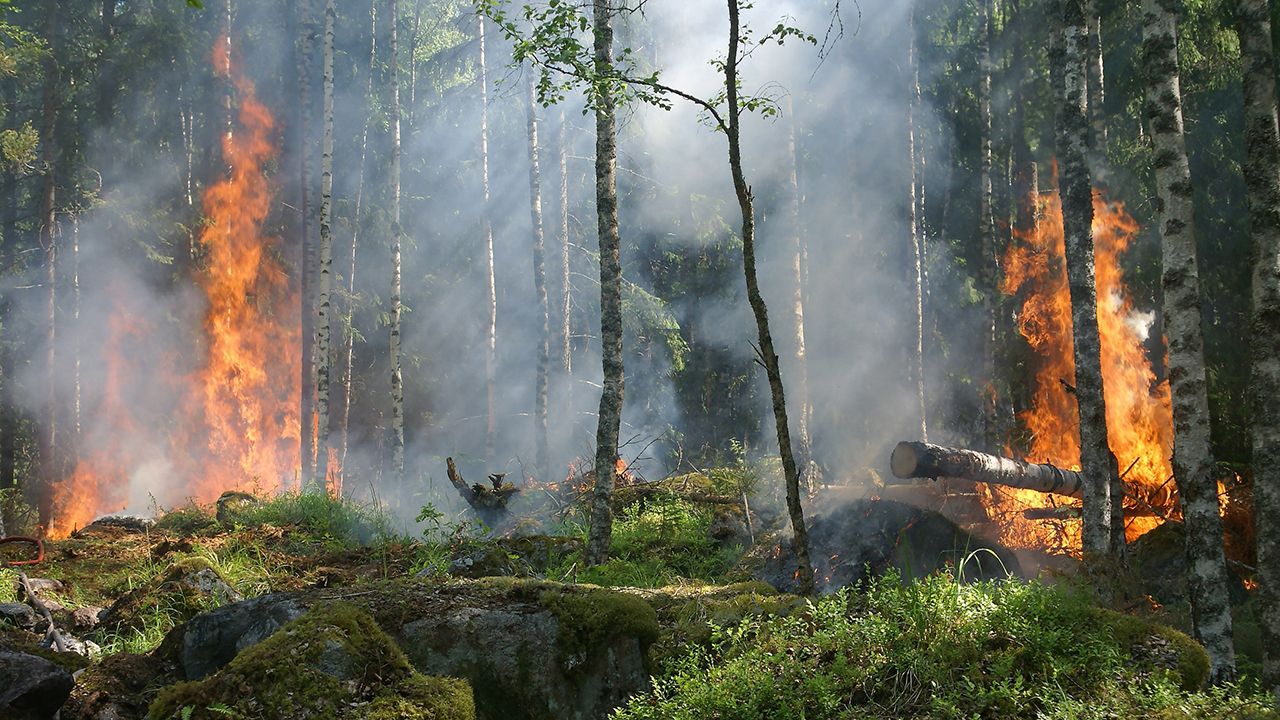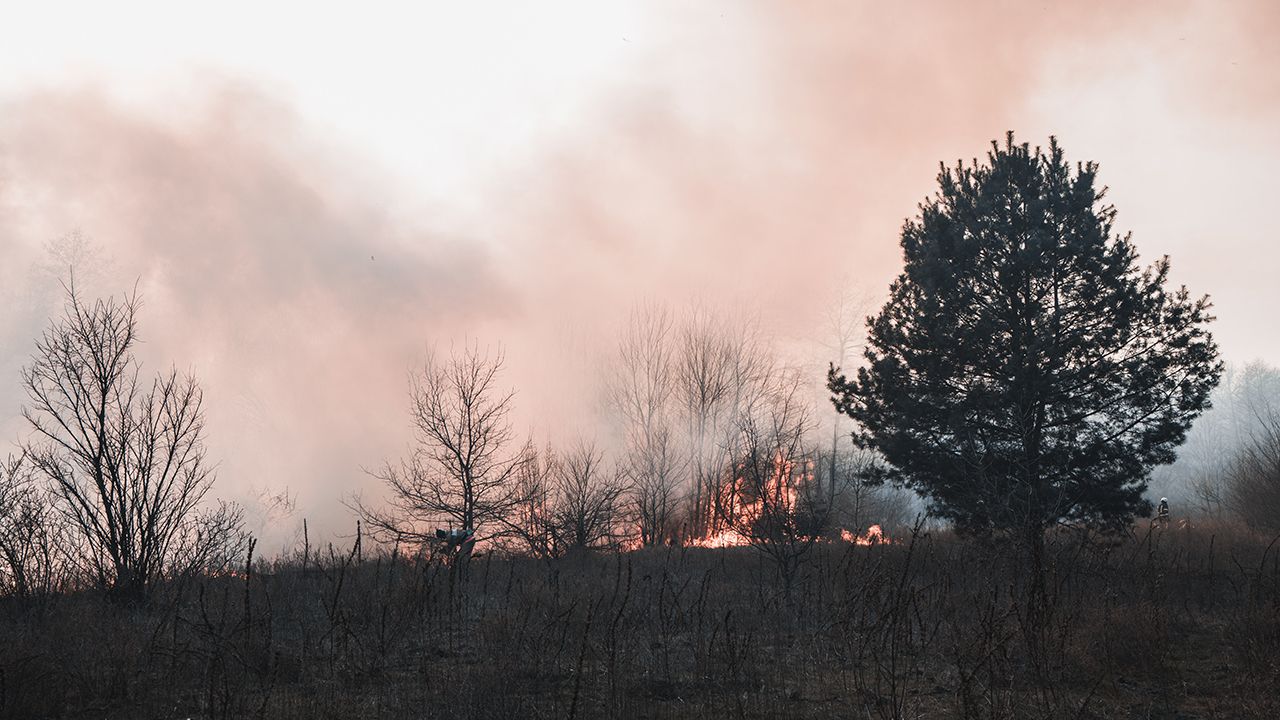Wildfires do a great deal of damage not only to the environment but also to our health.
Wildfire smoke isn’t just a mix of gases. It also contains burnt material from plants, building material, and anything else the fire burns.

Some particles are so small, they can penetrate deep into the lungs, and the United States Environmental Protection Agency states they can even get into our circulatory system.
Smoke from wildfires can affect your health in many ways.
The CDC says it can cause:
- Coughing
- Trouble breathing
- Asthma attacks
And wildfires don’t just affect the lungs. It can also cause:
- Headaches
- Fast heartbeat
- Stinging eyes
- Chest pains
- Tiredness
The people most prone to these effects are older adults, children, pregnant women and people with respiratory and heart conditions.

However, everyone should be cautious, especially when Air Quality Alerts go into effect for your area.
Smoke affects not only people. It can also harm your pets.
According to Dr. Colleen Lambo, a veterinarian with The Vets, your furry friend can also experience the same respiratory issues.
Smoke can lead to coughing, difficulty breathing and even wheezing, so take care of your pets just as you would yourself.
There are a few things you can do to help protect yourself.
Pay attention to your local weather and alerts that go into effect.
Stay indoors as much as possible if the smoke is thick in your area and use an air filter to make sure the air in your home stays clean.
Wearing a mask will protect your lungs if you have to go outside, filtering out harmful wildfire smoke particles.
Don’t use a vacuum as it can stir up dust in your house, and avoid burning anything that could pollute the air more, such as candles.
Our team of meteorologists dives deep into the science of weather and breaks down timely weather data and information. To view more weather and climate stories, check out our weather blogs section.



